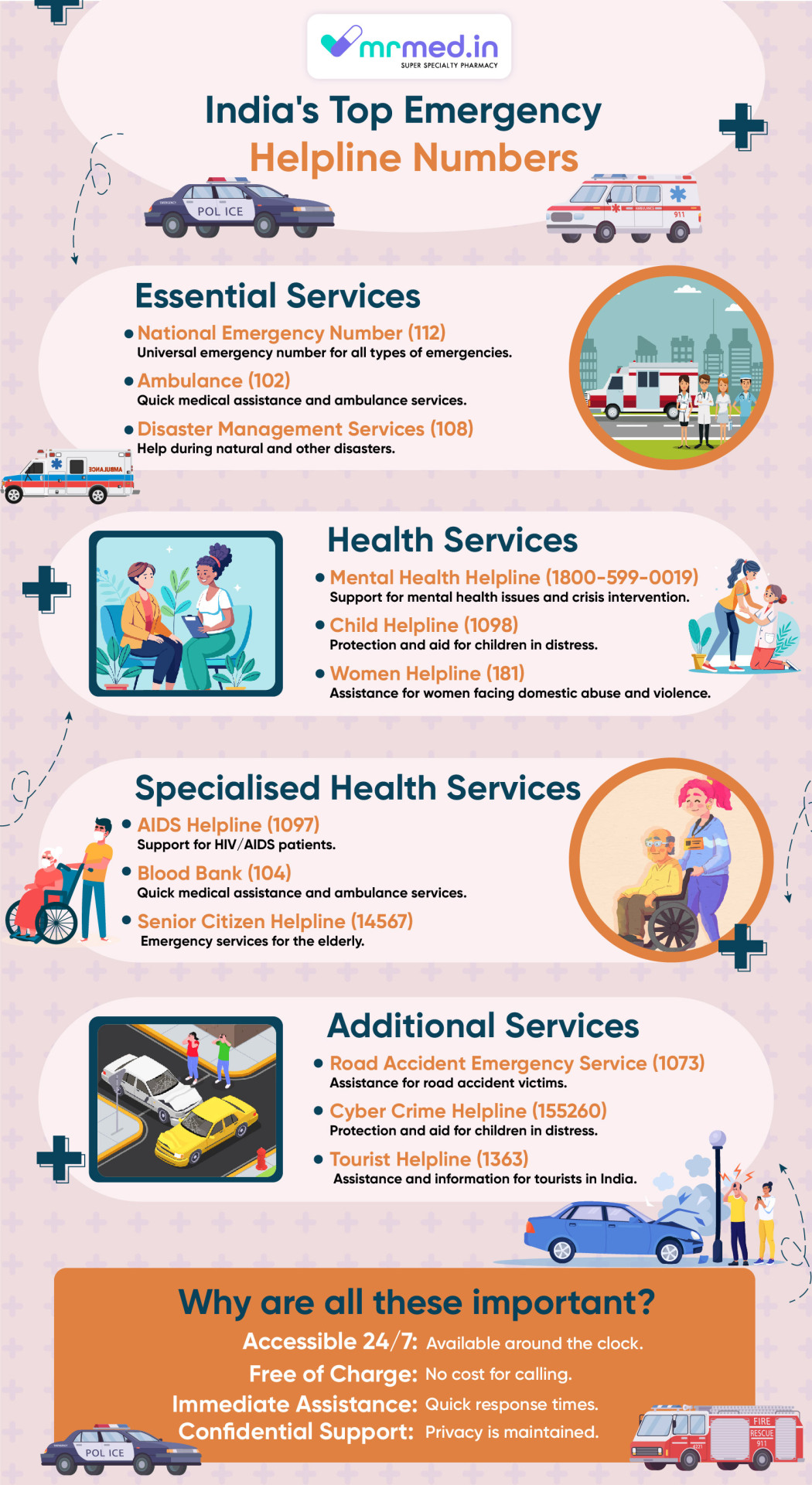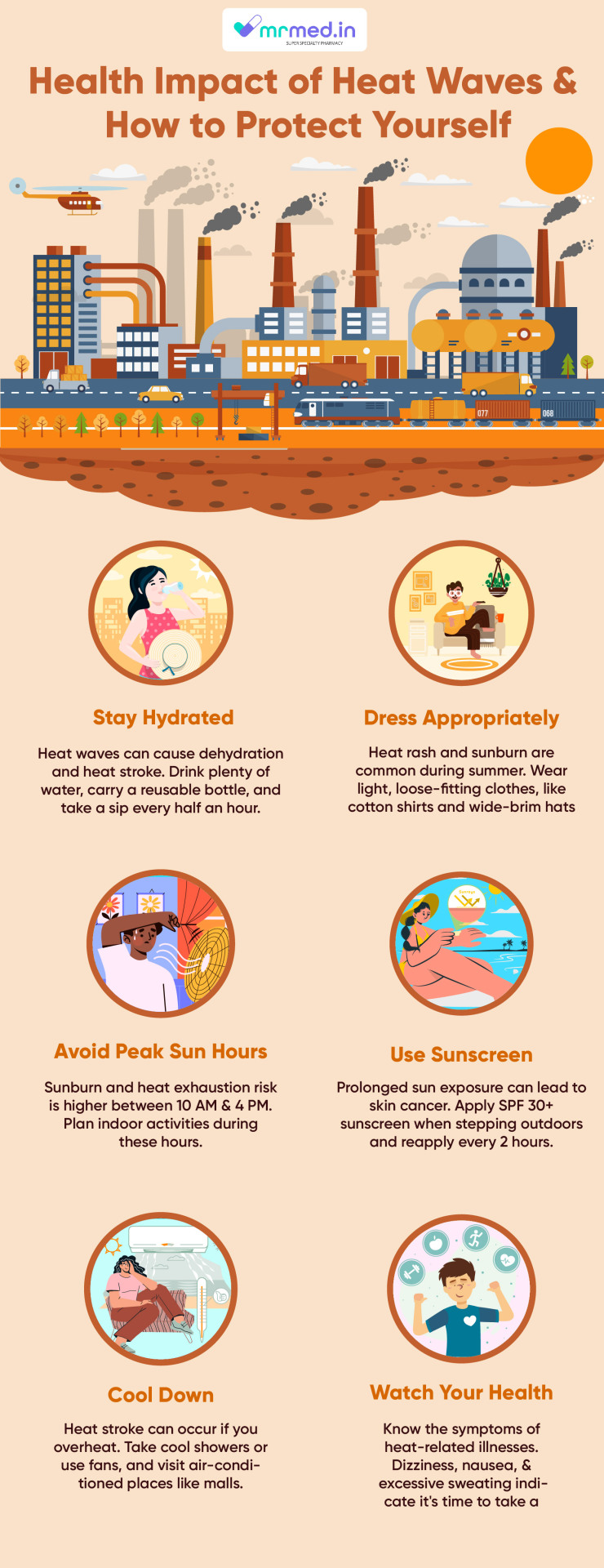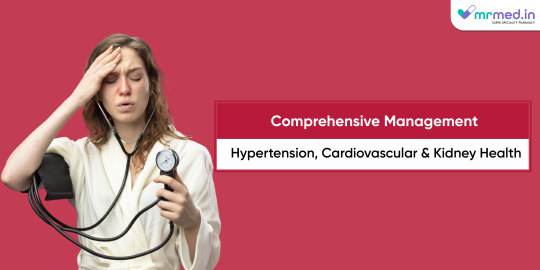Blogging Guest posting and Quality link building. Digital Marketing Manager devendrasinghdev.blogspot.com
Don't wanna be here? Send us removal request.
Text
Managing Autoimmune Arthritis With The Right Care
Are you feeling tired of constant joint pain and stiffness? Living with autoimmune arthritis can be challenging, but there’s hope. Thanks to advances in medicine, effective treatments now offer relief and better quality of life. Whether you’ve recently been diagnosed or have been managing autoimmune arthritis for years, understanding your options is essential. This guide breaks down treatments and medications to help you conquer the daily struggles of autoimmune arthritis.
What is Autoimmune arthritis?
Autoimmune arthritis is a condition where the body's immune system mistakenly attacks healthy joints, causing inflammation, pain, and damage. One of the most common types is rheumatoid arthritis, but there are others like psoriatic arthritis and lupus. What sets autoimmune arthritis apart from other forms of arthritis is the immune system's role in attacking the body's own tissues, resulting in chronic joint pain and discomfort.
How is Autoimmune arthritis diagnosed?
Autoimmune arthritis can be tricky to diagnose because its symptoms often overlap with other conditions. To identify the problem, doctors will usually start with a physical exam and order blood tests to look for inflammation markers, like the presence of rheumatoid factor (RF) or anti-cyclic citrullinated peptide (anti-CCP) antibodies. X-rays, MRIs, and ultrasounds may also be used to assess joint damage.
What are the main treatment options?
Treatment for autoimmune arthritis focuses on reducing inflammation, controlling symptoms, and preventing joint damage. The right treatment plan will depend on the type and severity of arthritis you have, but generally, it includes:
Medications: Non-steroidal anti-inflammatory drugs (NSAIDs), corticosteroids, and Disease-Modifying Antirheumatic Drugs (DMARDs) are usually prescribed to manage symptoms and slow the disease's progression.
Physical Therapy: Regular physical activity and exercises can help improve mobility and reduce stiffness. Professionals tailor exercises to strengthen muscles around the joints and maintain flexibility.
Lifestyle Changes: Maintaining a healthy diet, staying active, and managing stress are crucial in managing autoimmune arthritis. These habits can complement medications and therapies for better results.
How do TNF inhibitors help in Autoimmune arthritis treatment?
TNF (tumour necrosis factor) inhibitors are a game-changer in autoimmune arthritis treatment. They work by blocking a protein called TNF-alpha, which is responsible for inflammation in the joints. By preventing this protein from binding to cells, TNF inhibitors help reduce inflammation and slow down the progression of joint damage.
One common medication in this class is Enbrel 25mg Injection, which has helped many patients with rheumatoid arthritis manage their symptoms more effectively. Patients who respond well to TNF inhibitors often experience reduced joint pain, swelling, and stiffness, allowing them to lead more active lives. However, like all medications, TNF inhibitors are not without side effects, and it’s important to discuss with your doctor whether they’re right for you.
Can diet and lifestyle changes help?
Absolutely! While medicines play a critical role in managing autoimmune arthritis, lifestyle choices can also have a significant impact. Here are some tips to complement your treatment plan:
Anti-Inflammatory Diet: Certain foods can help fight inflammation, like salmon, leafy greens, berries, nuts, and olive oil. Avoid processed foods, sugary drinks, and excessive alcohol, which can worsen inflammation.
Regular Exercise: Low-impact exercises like swimming, walking, and yoga can improve flexibility and reduce joint stiffness. Physical activity also boosts mental health, which is vital for managing chronic conditions.
Stress Management: Chronic stress can trigger flare-ups of autoimmune diseases. Meditation, journalling and deep breathing can help lower stress levels, reducing the likelihood of an arthritis flare-up.
Are there natural remedies for autoimmune arthritis?
While natural remedies alone can’t replace conventional treatments, they may offer additional relief. Some people find that supplements like turmeric (known for its anti-inflammatory properties), omega-3 fatty acids, and glucosamine can help manage arthritis symptoms. Always talk with your doctor before trying any new supplements to ensure they won’t interfere with your current treatments.
How can you manage Autoimmune arthritis flares?
Flares, or sudden increases in symptom severity, are common in autoimmune arthritis. Managing flares involves being proactive about your health:
Medication Adherence: Stick to your prescribed medications even when you feel well to prevent future flares.
Track Symptoms: Keeping a journal of your symptoms can help you identify potential flare triggers, such as stress, poor sleep, or diet changes.
Rest When Needed: During a flare, it’s important to rest and avoid overexerting your joints. That said, balance is key—prolonged inactivity can lead to stiffness.
What to keep in mind going forward
Autoimmune arthritis doesn’t have to control your life. By understanding your treatment options, you can take charge of your condition and live a fulfilling life. Whether you're using TNF inhibitors or focusing on an anti-inflammatory lifestyle, combining medical care with self-care strategies is the best approach.
Keep working closely with your healthcare team, maintain healthy habits, and stay informed about your condition. Autoimmune arthritis may be a long-term challenge, but with the right tools and mindset, you can manage it effectively and enjoy life to the fullest.
#Autoimmune Arthritis#health#arthritis#joint pain#rheumatoid arthritis#pain management#psoriatic arthritis#NSAIDs#Antirheumatic Drugs
0 notes
Text

From urgent medical care to safeguarding women, children, and older people, these helplines are more than just phone numbers. For Top Emergency Helpline Numbers visit #medicalcare #helpline #Emergency #helplinenumbers #112 #police #Ambulance #AIDSHelpline #blood #death #childhealth #womensecurity #health
0 notes
Text
How to Prevent Hair loss During Monsoons?

How to Prevent Hair Loss During Monsoons? Here are seven tips to get started with: 1. Keep Your Hair Dry: 2. Opt for a Gentle Shampoo: 3. Maintain a Balanced Diet: 4. Regular Trimming:5. Avoid Tying Your Hair Tightly: 6. Use Natural Hair Masks: 7. Consult with a Specialist:
0 notes
Text
Top 10 Summer Salads Loaded with Anti-Inflammatory Ingredients

Enjoy a vibrant array of summer salads brimming with anti-inflammatory ingredients that promote health and delight the palate. Start with a quinoa and avocado salad, bursting with the benefits of healthy fats and fiber. Indulge in a berry and spinach salad, combining the antioxidant power of blueberries, strawberries, and leafy greens. Relish a turmeric-spiced chickpea salad for a touch of the potent anti-inflammatory spice. A Mediterranean-inspired salad with tomatoes, cucumbers, olives, and red onions offers a refreshing bite. Include a nutty kale and walnut salad, a zesty lemon-dressed arugula salad, and a sweet and tangy mango and black bean combo. Experiment with a beet and citrus salad, packed with vitamins and minerals. Finally, savor a ginger-infused carrot and cabbage slaw, and a hearty sweet potato and lentil salad, each packed with nutrients and anti-inflammatory properties, perfect for a summer feast.
#strawberries#cucumbers#olives#summer salads#quinoa#avocado salad#antioxidant#turmeric#walnut salad#salad#fruit salad#healthy salad recipes#Healthy salad
0 notes
Text
10 Mental Health Tips for Corporate Employees

10 Mental Health Tips for Corporate Employees: Here you’ll see some tips that may help you manage stress and improve mental health conditions caused by the workplace.
#mental health#Corporate Employees#stress#workplace#Working Professionals#Mental Health Tips#exercise and yoga#mental stress#healthy work environment#small breaks#Socialize#mental health conditions#office stress#mrmed#wellness#fun activities#help others
0 notes
Text
Top 5 Yoga Poses for Osteoporosis
Yoga is good for your health.

Yoga can improve posture, strength, and balance, which can help lower the risk of fractures and falls. Explore More Here - Top 5 Yoga Poses for Osteoporosis
#yoga#yogaposes#yoga pose#yogapractice#yoga daily#yogadaily#bone health#Osteoporosis#health#fitness#health & fitness#posture#Vrksasana#Bhujangasana#Savasana#Virabhadrasana II#Setu Bandhasana#Yoga Tips
1 note
·
View note
Text
12 ways to stay energized whole day

12 ways to stay energized all day - Staying energised throughout the day can be a real challenge, especially with our busy schedules. But don't worry, we've got some simple and practical steps that can help you keep your serotonin levels up, boosting your productivity and overall well-being.
#stay energised#Natural Diet#Hydrate#Healthy snacks#Short breaks#Stretching#Power naps#Fresh air#Natural light#Regular exercise#Deep breathing#Positive mindset#Limit caffeine#Mred Health Library#MrMed Blog
0 notes
Text

Health Impact of Heat Waves and How to Protect Yourself
0 notes
Text
How does the Avastin injection (bevacizumab) suppress intracellular tumour growth?

Avastin, known scientifically as bevacizumab, is a pivotal drug in oncology. It is known for its efficacy in suppressing intracellular tumour growth through targeted inhibition of vascular endothelial growth factor (VEGF). This blog explores the profound impact of Avastin across various cancer types, detailing its mechanism of action, clinical applications, safety profile, and future directions in cancer treatment.
What does Avastin do to cancer patients?
Avastin works by specifically binding to vascular endothelial growth factor (VEGF), a protein that stimulates the growth of new blood vessels necessary for tumour progression. Here is everything you need to know:
Inhibits Tumor Growth: Avastin (bevacizumab) works by precisely targeting and inhibiting vascular endothelial growth factor (VEGF). This protein is crucial for the formation of new blood vessels that tumours need to grow. This precise mechanism of action is what makes Avastin so effective. By blocking VEGF, Avastin reduces the blood supply to tumours, thereby slowing down their growth and potentially shrinking them.
Enhances Treatment Effectiveness: When used in combination with chemotherapy or other cancer treatments, Avastin enhances their effectiveness. By reducing the blood flow to tumours, Avastin helps other treatments penetrate tumours more effectively, improving overall treatment outcomes.
Delays Disease Progression: Avastin is known to prolong the time before cancer progresses. In clinical trials, it has been shown to increase progression-free survival rates in various types of cancers, including colorectal, lung, breast, and kidney cancers, as well as glioblastoma.
Improves Quality of Life: For many cancer patients, Avastin not only slows disease progression but also improves the quality of life by reducing symptoms associated with advanced cancer, such as pain and discomfort caused by tumour growth.
Potential Side Effects: While generally well-tolerated, Avastin can cause side effects such as hypertension, proteinuria (excess protein in the urine), bleeding, gastrointestinal perforation, and impaired wound healing. Close monitoring by healthcare providers is essential to manage these risks effectively during treatment.
What types of cancer is Avastin used for?
In clinical settings, Avastin 100mg injection is prescribed to patients with advanced stages of cancer, including colorectal, lung, breast, and kidney cancers, among others. Its effectiveness lies in its ability to disrupt the tumour's blood supply, thereby shrinking tumours and preventing their progression.
Colorectal Cancer: Avastin is approved for use in combination with chemotherapy for metastatic colorectal cancer. It helps to slow down tumour growth and improve survival rates.
Lung Cancer: In non-small cell lung cancer (NSCLC), Avastin is used as a first-line treatment in combination with chemotherapy. It has been shown to extend survival and delay disease progression.
Breast Cancer: Avastin may be used in combination with chemotherapy for metastatic HER2-negative breast cancer. It helps to reduce blood flow to tumours, potentially shrinking them and improving treatment outcomes.
Kidney Cancer: Avastin is utilised for advanced renal cell carcinoma (kidney cancer), often in combination with other targeted therapies or immunotherapy agents. It targets VEGF, which is crucial for tumour blood vessel growth.
Does Avastin have side effects?
Avastin has demonstrated significant benefits for cancer patients, especially those in advanced stages of the disease. It notably improves both progression-free survival and overall survival rates by targeting vascular endothelial growth factor (VEGF), a protein crucial for tumour blood vessel formation.
While Avastin is generally well-tolerated, it can cause several potential side effects that require careful monitoring. Common side effects include
Hypertension (high blood pressure)
Proteinuria (excess protein in the urine)
Bleeding tendencies
Gastrointestinal perforation (a rare but serious complication)
Impaired wound healing
How do patients respond to Avastin treatment?
While Avastin is generally well-tolerated, it can cause several potential side effects that require careful monitoring. Common side effects include hypertension (high blood pressure), proteinuria (excess protein in the urine), bleeding tendencies, gastrointestinal perforation (a rare but serious complication), and impaired wound healing. Patients undergoing Avastin treatment should be closely monitored for these side effects, and healthcare providers may adjust treatment regimens as needed to manage these risks effectively.
#Avastin#Avastin injection#bevacizumab#Avastin treatment#oncology#intracellular tumour#Colorectal Cancer#Lung Cancer#Breast Cancer#Kidney Cancer#Avastin side effects#cancer patients#non-small cell lung cancer#cancer treatment
0 notes
Text

Mango is good for your health, It's my favorite fruit.
Mangoes are packed with vitamins A and C, loaded with antioxidants, and contain nutrients that are beneficial for your heart.
#mango#mango lassi#mango speaks#fruit#VItamins#antioxidants#seasonal fruits#Health#vitamin c#vitamin a
0 notes
Text

Top 10 Summer Foods
Join us on a culinary journey as we explore the top 10 summer foods that are sure to elevate your dining experience and keep you coming back for more.
Juicy Watermelon
Grilled Corn on the Cob
Vibrant Berries
Fresh Garden Tomatoes
Cool Cucumber Salad
Sweet and Tangy Pineapple
Mango Lassi
Sprouted Moong Salad
Mouthwatering Stone Fruits
Icy Refreshments
#summer foods#Watermelon#Grilled Corn#Berries#Tomatoes#Cucumber#Pineapple#Mango Lassi#Sprouted Moong Salad
2 notes
·
View notes
Text

Top 10 Refreshing Summer Drinks: Beat the Heat with these Cool Beverages!
Top 10 Summer Drinks
Join us on a refreshing journey to find out the Top 10 summer drinks that help you rejuvenate, refresh, and rehydrate.
Lemon mint lemonade
Watermelon Juice
Tender coconut water/ Coconut smoothies
Jal jeera
Ice apple sharbat
Nannari Sharbat – The flavor of south
Lassi and buttermilk
Iced tea
Ragi Ambali
Cocktails
#summer drinks#mint lemonade#watermelon#coconut water#lemon juice#jaljeera#ice apple#lassi#buttermilk#iced tea
0 notes
Text
Wellness Worked-out: Your Guide to Hypertension, Heart Health, and Kidney Vitality

Healthcare management often comes with tackling chronic conditions like hypertension (high blood pressure), cardiovascular diseases, and kidney health, each crucial for enhancing patient outcomes and quality of life.
Among the myriad of treatments available, the Telma CT 40mg/6.25mg tablets emerge as a significant option, particularly in managing hypertension, a condition often linked to chronic kidney disease (CKD) and diabetic nephropathy. This article delves into the comprehensive management strategies encompassing stress control and cardiovascular and kidney health, underscoring the role of medication, lifestyle modifications, and regular monitoring in mitigating risks and complications.
What is the main cause of hypertension?
High blood pressure is a condition where the blood-pumping pressure in the arteries is persistently elevated, posing significant risks to cardiovascular health.
The main cause of hypertension is multifactorial, often stemming from a combination of genetic predisposition, lifestyle factors like a diet high in sodium, obesity, lack of physical activity, excessive alcohol consumption, and smoking, as well as underlying medical conditions like kidney disease and diabetes.
What is Telma CT 40 6.25 mg used for?
The Telma CT 40mg/6.25mg Tablet is a combination medication that has been instrumental in treating hypertension. It combines Telmisartan and Chlorthalidone, where Telmisartan acts as an angiotensin receptor blocker (ARB), and Chlorthalidone is a thiazide-like diuretic. This synergistic action protects the kidneys, making it an ideal choice for patients with CKD and Diabetic Nephropathy.
The most common after-effects include dizziness, headache, fatigue, nausea, and electrolyte imbalance. If any of these symptoms persist or worsen, consult a healthcare provider.
How does high blood pressure affect the kidneys?
Hypertension harms the blood vessels in the kidneys, cutting back on their ability to function correctly. Over time, this can lead to CKD and increase the risk of kidney failure. Here are some prolonged side effects:
Induces inflammation and oxidative stress within the delicate network of blood vessels in the kidneys, impairing their ability to filter waste and regulate venous pressure.
Persistent stress causes the renal arteries to thicken and narrow, restricting blood flow to the kidneys and diminishing their function over time.
Elevated pressure in the glomeruli (tiny filtering units in the kidneys) can damage them and leak protein into the urine, a hallmark sign of kidney injury.
The interplay between high blood pressure and kidney dysfunction often exacerbates cardiovascular complications, amplifying the risk of heart disease and stroke.
Chronic exposure to high pressure accelerates the progression of kidney disease, escalating the likelihood of end-stage renal failure necessitating dialysis or transplantation.
Stress-related kidney damage extends beyond filtration impairment, disrupting hormonal regulation mechanisms that control electrolyte balance and red blood cell production.
Is Telma CT effective in kidney protection?
The combination of Telmisartan and Chlorthalidone in Telma CT has been shown to protect the kidneys, particularly in patients with diabetes. Here is how it works:
Telmisartan
Telmisartan is composed of an angiotensin II receptor blocker (ARB). Angiotensin II, a substance produced by the body, binds to receptors in the arteries, causing them to narrow and raise blood pressure. Telmisartan relaxes and widens the vessels by blocking the action of angiotensin II, thereby reducing the pump rate. This is crucial for the kidneys because high blood pressure is one of the leading causes of kidney damage.
Chlorthalidone
Chlorthalidone is a thiazide-like diuretic that prevents your body from absorbing excess salt, which might cause fluid retention. It works by escalating urine output, which helps lower blood pressure. While the primary role of chlorthalidone is to aid in fluid elimination and control, it also has a beneficial effect on the kidneys.
Combined Effect on Kidney Protection
The combination of Telmisartan and Chlorthalidone in Telma CT offers a dual approach that is particularly beneficial for kidney protection. Hypertension and diabetes are two significant risk factors for the development of chronic kidney disease. Diabetes can significantly damage the small blood vessels in the kidneys, impairing their function. High veinal pressure compounds this problem by further stressing the kidneys.
Consultation is the key!
Regular discussions with healthcare professionals are paramount for individuals diagnosed with hypertension, cardiovascular diseases, or kidney conditions. This practice is crucial for the precise adjustment of medications and treatments and for effectively tracking the progress of lifestyle modifications and their impact on overall health. Engaging in ongoing consultations and health checks is pivotal in managing these conditions, ensuring that heart health abbarations are addressed promptly.
#Telma CT 40mg/6.25mg Tablet#high blood pressure#hypertension#Chronic Kidney Disease#Telmisartan and Chlorthalidone#mrmedpharmacy#mrmed#life saving drugs
0 notes
Text

Understanding Metastatic Breast and Colorectal Cancer: Treatment, Challenges, and Hope
For example, Capiibine 500mg Tablet is a chemotherapy drug with the active ingredient Capecitabine. It belongs to the category of medicines known as antimetabolites. This is used in combination with other anticancer drugs for the management of metastatic colorectal cancer and breast cancer. For more read: https://ecency.com/breast/@mrmed/breast-and-colorectal-cancer-treatment
0 notes
Text
MrMed launches maiden campaign with 'Sahi Dawa, Sahi Daam, Sahi Samay Par' narrative

Confronting the daunting expenses of critical illnesses can be overwhelming, particularly as medication costs escalate. MrMed, an innovative online super-speciality pharmacy, has launched its first-ever advertising campaign, championing the message: 'Sahi Dawa, Sahi Daam, aur Sahi Samay par' – the right medicine, at the right price, and at the right time. Watch The Ad Here
#super Speciality pharmacy#mrmedpharmacy#mrmed#online pharmacy#cancer medicines#life saving drugs#cancer#sahi dawa#sahi daam#sahi samay par
0 notes
Text
Unmasking the Cancer Conundrum: India's Ongoing Battle and Public Fear
Cancer is considered the second leading cause of death all over the world. It is the most prevalent health concern that affects millions of people. India has also faced a lot of struggle to overcome these enemies. This article discusses the ongoing battle and public fear in India and also involves some inspiring stories of Indian celebrities who have conquered cancer.
The Rising Incidence
India grapples with an increasing number of cancer cases, fueled by factors ranging from lifestyle changes and environmental pollutants to an aging population. This surge necessitates a closer examination of the multifaceted nature of the disease and a collective effort to address the growing public fear surrounding it.
Public Fear and Stigma
The fear of a cancer diagnosis is pervasive in India, often leading to delayed medical intervention and compounding the challenges associated with the disease. By delving into the psychological aspects of public fear and the associated social stigmas, we aim to unravel the complexities that hinder timely diagnosis and effective treatment.
Indian Celebrities: Inspiring Tales of Triumph
Several Indian celebrities have become an inspiration and a ray of hope for the cancer fighters. They not only survive cancer but also use this platform to raise awareness about cancer.
From Bollywood stars to sports achievers, they share their stories to create resilience, determination, and the importance of early detection and treatment. Some of the Indian celebrities who survived and battled cancer are available in the MrMed Health Library.
Government Initiatives and Awareness
While celebrities play a crucial role in inspiring the public, government initiatives and awareness campaigns are equally pivotal in the fight against cancer. This section explores the comprehensive strategies employed by the Indian government, healthcare organizations, and NGOs to address the rising cancer burden and enhance public awareness.
Challenges and Triumphs
Beyond the glitz and glamour, challenges persist in the form of healthcare accessibility, social stigma, and misinformation. By examining these hurdles and celebrating the triumphs of those who have overcome them, we gain insights into the broader landscape of cancer care in India.
Conclusion
Cancer can be defeated if we follow the treatment plans promptly, and it can be easily cured by early diagnosis. With determination, every cancer fighter can also turn out to be an inspiration like the one celebrating in India. Let’s spread awareness and protect our loved ones from this enemy.
0 notes
Text
Understanding Autoimmune Disorders And Advances In Medication: A Comprehensive Exploration
An autoimmune disorder is a disorder in the immune system which attacks its healthy cells. This disorder affects various organs and systems in the human body. In recent years, significant strides have been made in understanding the underlying mechanisms of autoimmune disorders and developing innovative medications to manage these conditions effectively.
I. The Nature Of Autoimmune Disorders
During the autoimmune disorder, the immune system loses its ability to differentiate the foreign and own cells, which destroys the body's cells and tissues. Several factors like genetic predisposition, environmental triggers, and loss of immune tolerance may lead to this disorder. This may also cause joint pain, inflammation, kidney, heart, and nerve disorders.
II. Mechanisms Of Autoimmunity
A. Immune System Dysfunction: The immune system acts as a self-defense force that helps protect our body from infection. When this immune system is disturbed, it identifies its own cells as foreign bodies.
B. Breakdown Of Self-Tolerance
Self-tolerance, the immune system's ability to recognize and tolerate the body's own cells, is crucial. Autoimmune disorders arise when this tolerance breaks down, leading to immune attacks on healthy tissues.
C. Genetic And Environmental Factors
Both genetics and environment play a major role in an autoimmune disorder. Individuals who have a family history of autoimmune disorder may have an increase in it. Environmental factors like infections also disturb immune response and lead to autoimmune disorders.
III. Diverse Array Of Autoimmune Diseases
Diseases like rheumatoid arthritis, systemic lupus erythematosus (SLE), type 1 diabetes, multiple sclerosis, and inflammatory bowel disease (IBD) may also be caused by autoimmune disorders.
IV. Diagnostic Approaches
Early diagnosis, like clinical evaluation, laboratory tests, imaging studies, and, in some cases, biopsy, helps to manage the autoimmune disorder effectively.
V. Advances In Medication
A. Non-steroidal anti-inflammatory Drugs (NSAIDs)
NSAIDs help alleviate pain and inflammation, offering symptomatic relief for many autoimmune disorders.
B. Disease-Modifying Anti-Rheumatic Drugs (DMARDs)
DMARDs, commonly used in rheumatoid arthritis, aim to modify the course of the disease, slowing its progression and preventing further joint damage.
C. Biologic Therapies And Monoclonal Antibodies
These medications target specific components of the immune system, reducing inflammation and mitigating autoimmune responses. Biologics have shown efficacy in treating conditions like psoriasis, rheumatoid arthritis, and Crohn's disease.
D. Corticosteroids And Immunosuppressants
These medications suppress the immune system's activity, reducing inflammation and preventing damage to affected tissues. However, their long-term use is often associated with side effects.
E. Immunomodulatory Drugs
These drugs modulate the immune system, restoring its balance and preventing excessive immune responses.
VI. Challenges And Considerations in Medication Management
A. Individualized Treatment Plans
Autoimmune disorders manifest differently in each individual, necessitating personalized treatment plans tailored to specific conditions and patient needs.
B. Side Effects And Long-Term Risks
Many medications used to manage autoimmune disorders come with potential side effects and long-term risks, requiring careful consideration and monitoring.
C. Treatment Adherence And Patient Education
Patient education is crucial for fostering treatment adherence and empowering individuals to actively participate in managing their conditions.
VII. Future Directions And Research Trends
A. Personalized Medicine And Precision Therapeutics:
Advances in genetic research are paving the way for personalized treatment approaches, tailoring therapies to individuals' unique genetic profiles.
B. Immunotherapies And Targeted Biologics
Ongoing research focuses on developing innovative immunotherapies and targeted biologics with increased specificity and efficacy in treating autoimmune disorders.
C. Advances in Genetic And Biomarker Research
The identification of specific genetic markers and biomarkers holds promise for early diagnosis, targeted interventions, and more accurate prognostic assessments.
VIII. Patient Empowerment And Support
A. Lifestyle Modifications And Integrative Approaches
Lifestyle modifications, including diet and exercise, can complement medical treatments and improve overall well-being.
B. Psychological Well-Being And Coping Strategies
Autoimmune disorder is a challenging disorder, necessitating attention to mental health and coping strategies to enhance the quality of life.
C. Support Groups And Advocacy Initiatives
Engaging with support groups and advocacy initiatives can provide individuals with autoimmune disorders a sense of community, shared experiences, and valuable resources.
Conclusion
In conclusion, early diagnosis, advanced medication (immunomodulator), and proper treatment approaches can effectively manage autoimmune disorders. Research and development are needed to lower the side effects caused by the drugs used to treat autoimmune disorders. We defeat the autoimmune disorder which affects our health by following a proper protocol.
0 notes